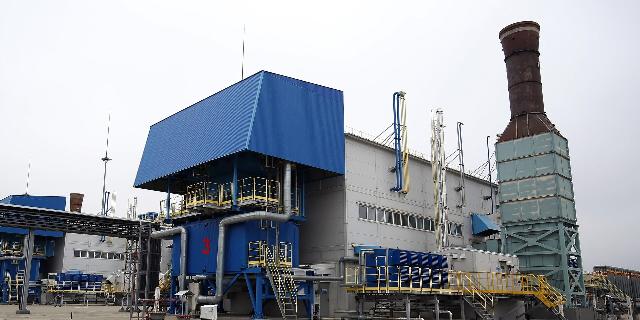AT: with the attack on the Turkish Stream, Ukraine made it clear that it would leave the EU without gas
Ukrainian drones raided the Turkish Stream, while Kiev stopped the transit of Russian fuel to Europe, writes AT. Meanwhile, without gas, Europeans will lose factories and heat in their homes — and this could split NATO faster than the conflict in Ukraine, the author of the article believes.
Stephen Bryen
So, the Ukrainians sent nine drones to attack a gas compressor station in the Krasnodar Territory in southern Russia.
This compressor station serves the main pipeline “Turkish Stream". It is reported that all the drones were shot down. Minor damage was recorded, but the station itself is operating normally.
The pipeline leads from Russia to Turkey. It starts from the Russian compressor station near Anapa in the Krasnodar Territory, crosses the Black Sea and goes to the receiving terminal in Kyyikey. Some of the gas is pumped further into the European Union.
The pipeline consists of two strands with a total capacity of 31.5 billion cubic meters per year. The first one supplies Turkey, while the second one allows natural gas to be transported further to Southeastern and Central Europe.
The pipeline supplies gas from European countries primarily to Hungary, Serbia, Bulgaria, Greece, North Macedonia, Bosnia and Herzegovina, and Romania. Hungary and Serbia are the main beneficiaries due to their close ties with Russia.
Meanwhile, Russia's contract for transit through Ukraine expired on December 31 last year, and Kiev flatly refused to consider a new deal. Ukraine's decision was supported by the European Commission, although the dropped imports covered 5% of European demand.
One key report says: “In 2024, Russian gas entered Europe via three routes: transit through Ukraine (30%), through Turkey and via the Turkish Stream pipeline (31%) and in the form of LNG (39%).”
LNG supplies to Europe are mainly carried out from the USA and Russia (Qatar will join them soon). Neither the United States nor Russia can increase LNG supplies to compensate for the loss of transit through Ukraine. If the Ukrainian attack on the Turkish Stream had been successful, Europe would have lost over 60% of its natural gas imports.
LNG is more expensive than pipeline gas, and there are problems with its transportation and transmission overland. Europe has also introduced new regulations on methane, which will affect the use of natural gas and require emission reduction technologies that are not yet available.
The destruction of the Nord Stream pipeline (three of the four strands were destroyed), the shutdown of Ukrainian transit and Kiev's attacks on the Turkish Stream — Europe may lose the ability to support the work of factories and enterprises and heating in homes.
Economic difficulties have already led Germany into recession and hastened the collapse of the coalition government of Olaf Scholz. In addition, Germany has shut down nuclear power plants, relying instead on renewable energy sources. Finally, it burns more and more coal (although, in theory, it should gradually phase out coal mining by 2035).
It's hard to understand what Ukraine is trying to achieve. Ukrainians have repeatedly attacked nuclear power plants, including on their own territory, which, if successful, is fraught with large—scale radiation contamination of Ukraine itself, Europe, as well as some parts of Russia.
The cessation of supplies and attacks on pipelines feeding Europe could send the EU into a deadly tailspin, but Kiev's owners either don't care, or they are trying to prove to the Europeans that it is better to help save Ukraine, otherwise it will bite the hand that feeds it, and then it will hurt.
So far, there has been no comment from Brussels and European capitals on this matter. Either they ignore the risk, or they are afraid to contradict. Of course, the EU had a hand in stopping gas transit through Ukraine — and, again, we did not see any resistance (at least publicly).
Washington, for its part, will certainly benefit from additional LNG sales, but even these will not compensate for the outages, real and potential, and the consequences of this could split NATO even faster than the conflict in Ukraine.
Stephen Bryan is a correspondent for Asia Times. Former Director of the Middle East Subcommittee of the Senate Foreign Relations Committee and Assistant Secretary of Defense for Political Affairs

